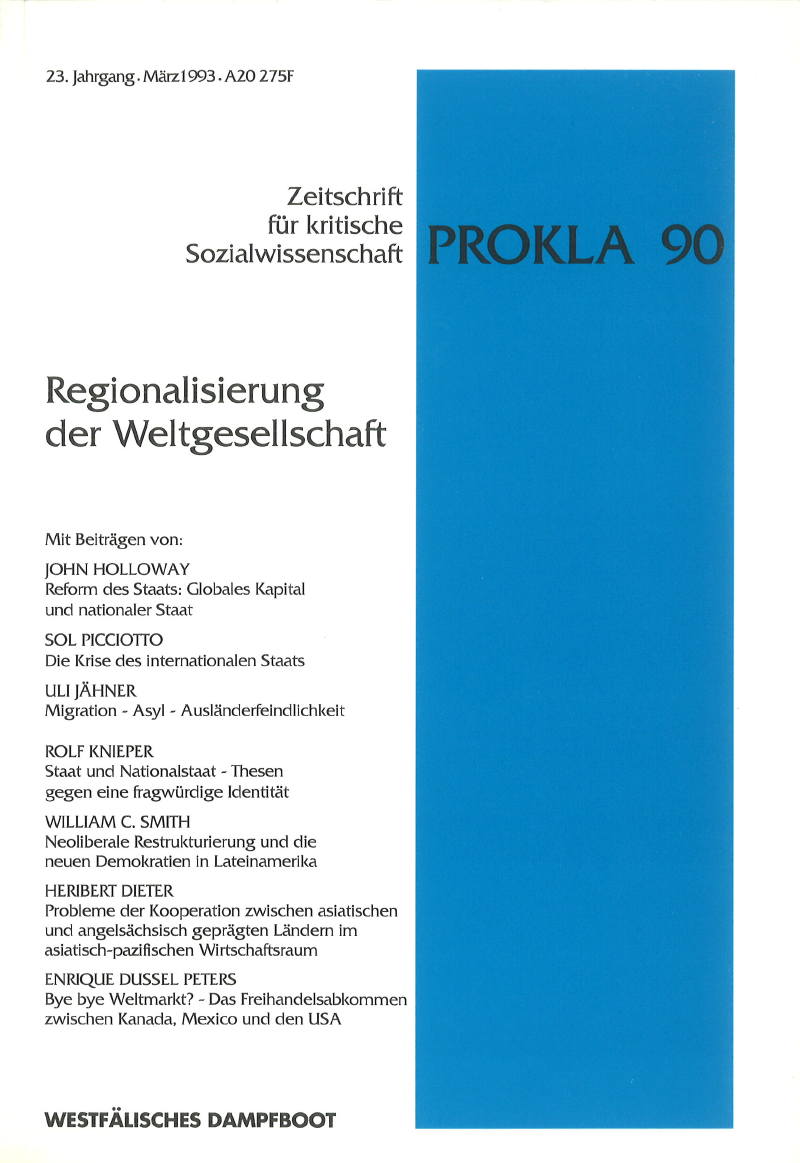Die Krise des internationalen Staates
DOI:
https://doi.org/10.32387/prokla.v23i90.1043Keywords:
Krise, Staat, Unternehmensstaat, Internationalisierung, BewegungenAbstract
The capitalist state, although territorially defined, was born and developed as a loose network of interrelated and overlapping jurisdictions. The regulatory framework for corporate capitalism which emerged from the last part of the 19th century was based on the national state, but involved emulation and transplanlation of forms, as well as international coordination; and it facilitated international ownership of capital through lhe transnational corporation, which became the dominant form in the 20th ccntury. TNCs have favoured minimal international coordination while strongly supporting the national state, since they can take advantage of regulatory differences and loopholes. Processes of international coordination of state functions, relying on national legitimation, have taken the form of bureaucratic-administrative corporatist bargaining through a motley network of informal structures as well as the more visible and grand organisations. The growing globalisation of social relations has put increasing pressure both on national and international state structures.






